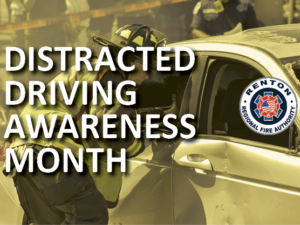
Keeping our community safe and healthy has always been a primary focus. We continue to be unwavering in that commitment in the face of COVID-19. We are taking every precaution to ensure that the information we share and the actions we take are in line with best practices, as the virus evolves and new information emerges. But our mission to limit the exposure of COVID-19 throughout our community rests on more than just our shoulders. We cannot do this alone. It is up to each community member to take protective actions for themselves too, and in doing so, take protective actions for the well-being of others. Each time you follow measures that help prevent catching COVID-19, you are also helping stop spread of the virus to vulnerable populations of our community – which saves lives.
Here are some key ways to protect yourself and others, as recommended by the CDC:
Stay informed about the local COVID-19 situation. Get up-to-date information about local COVID-19 activity from public health official. Be aware of school closures that may affect your household’s daily routine. Currently most schools in the area are closed from March 16 – April 24. Check with your school to be sure of any closure dates.
Stay home if you are sick. Stay home if you have COVID-19 symptoms. If a member of your household is sick, stay home from school and work to avoid spreading COVID-19 to others.
- If your children are in the care of others, urge caregivers to watch for COVID-19 symptoms.
Continue practicing everyday preventive actions. Cover coughs and sneezes with a tissue and wash your hands often with soap and water for at least 20 seconds. If soap and water are not available, use a hand sanitizer that contains 60% alcohol. Clean frequently touched surfaces and objects daily using a regular household detergent and water.
Use the separate room and bathroom you prepared for sick household members (if possible). Avoid sharing personal items like food and drinks. Provide your sick household member with clean disposable facemasks to wear at home, if available, to help prevent spreading COVID-19 to others. Clean the sick room and bathroom, as needed, to avoid unnecessary contact with the sick person.
- If surfaces are dirty, they should be cleaned using a detergent and water prior to disinfection. For disinfection, a list of products with EPA-approved emerging viral pathogens claims, maintained by the CBC, is available at Novel Coronavirus (COVID-19) Fighting Products. Always follow the manufacturer’s instructions for all cleaning and disinfection products.
Stay in touch with others by phone or email. If you live alone and become sick during a COVID-19 outbreak, you may need help. If you have a chronic medical condition and live alone, ask family, friends, and health care providers to check on you during an outbreak. Stay in touch with family and friends with chronic medical conditions.
Take care of the emotional health of your household members. Outbreaks can be stressful for adults and children. Children respond differently to stressful situations than adults. Talk with your children about the outbreak, try to stay calm, and reassure them that they are safe.
Manténgase informado acerca de la situación del COVID-19 a nivel local. Obtenga información actualizada sobre la actividad local del COVID-19 por parte de los funcionarios de salud públic. Entérese de las suspensiones temporales de clases en la escuela en su área, porque esto podría afectar la rutina diaria de los miembros de su hogar.
Quédese en casa si está enfermo. Quédese en casa si tiene síntomas del COVID-19. Si un miembro de su hogar está enfermo, quédese en casa y no vaya a la escuela ni al trabajo para evitar propagar el COVID-19 a los demás.
- Si sus hijos están bajo el cuidado de otras personas, inste a los cuidadores a estar atentos a la aparición de síntomas del COVID-19.
Siga practicando medidas preventivas cotidianas. Cúbrase la nariz y la boca con un pañuelo desechable al toser o estornudar y lávese frecuentemente las manos con agua y jabón por al menos 20 segundos. Si no hay agua y jabón disponibles, use un desinfectante de manos que contenga al menos un 60 % de alcohol. Limpie a diario las superficies y los objetos que se tocan con frecuencia con un detergente doméstico regular y agua.
Use la habitación y el baño separados que preparó para miembros del hogar enfermos (si es posible). Infórmese sobre cómo cuidar en casa a una persona con COVID-19. Evite compartir objetos personales como alimentos y bebidas. Proporciónele al miembro de su hogar enfermo mascarillas desechables limpias (si están disponibles) para usar en casa y ayudar a prevenir la propagación del COVID-19 a los demás. Limpie la habitación y el baño para enfermos, según sea necesario, para evitar el contacto innecesario con la persona enferma.
- Si las superficies están sucias, deberían limpiarse usando detergente y agua antes de desinfectarlas. Para la desinfección, hay una lista de productos aprobados por la Agencia de Protección Ambiental (EPA) que afirman servir contra patógenos virales emergentes; la lista está mantenida por el CBC y está disponible en Productos que combaten el nuevo coronavirus 2019 (COVID-19). Siempre siga las instrucciones del fabricante para todos los productos de limpieza y desinfección.
Manténgase en contacto con los demás por teléfono o correo electrónico. Si vive solo y se enferma durante un brote de COVID-19, es posible que necesite ayuda. Si tiene una afección crónica y vive solo, pídales a familiares, amigos y proveedores de atención médica que se comuniquen con usted para ver cómo está durante un brote. Manténgase en contacto con familiares y amigos que tengan afecciones crónicas.
Cuide la salud emocional de los miembros de su hogar. Los brotes pueden ser estresantes para adultos y niños. Los niños responden a situaciones estresantes de manera diferente que los adultos. Hable con sus hijos acerca del brote, trate de mantenerse calmado y garantíceles que están seguros.
持续了解当地 COVID-19 的情况。 从公共卫生官员那里获得关于当地 COVID-19 疫情的最新信息。 请留意您所在地区的学校是否临时关闭,因为这可能会影响您家庭的日常生活。
生病时待在家中。 如果您出现 COVID-19 症状 ,请待在家里。 如果您的家庭成员生病,请勿去学校或工作,只需呆在家里,避免将 COVID-19 传播给其他人。
- 如果您的孩子接受其他人照护,请督促照护者留意 COVID-19 症状。
继续执行日常预防措施。咳嗽和打喷嚏,用纸巾捂住口鼻,并用肥皂和水经常洗手至少 20 秒。 如果肥皂和水不可用,请使用含 60% 酒精的洗手液。 每天使用家用清洁剂和水清洁经常接触的表面和物体。
如果可能,让患病家庭成员使用您为他们准备的单独房间和浴室。 学习如何在家中照护 COVID-19 患者。 避免共用个人物品,如食物和饮料。 如果有条件,为您生病的家庭成员提供干净的一次性口罩,以便在家中佩戴,以帮助防止 COVID-19 传播给其他人。 根据需要对房间和洗手间进行清洁,避免与患者发生不必要的接触 。
- 如果表面脏污,应在消毒前使用清洁剂和水进行清洁。 在消毒方面,CBC 编制、由 EPA 批准的新病毒病原体声明的产品清单见抗新型冠状病毒 (COVID-19) 产品。 所有清洁和消毒产品必须遵守制造商的说明。
通过电话或电子邮件与他人保持联系。如果您在 COVID-19 爆发期间独居并生病,您可能需要帮助。 如果您患有慢性疾病而且独居,请家人、朋友和医护人员在疫情爆发期间对您进行检查。 与患有慢性疾病的家人和朋友保持联系。
照顾家庭成员的情绪健康。 疫情可能会给成人和儿童带来压力。 儿童应对疫情的反应与成人不同。 与孩子们谈论疫情,尽量保持冷静,让他们放心自己是安全的。






